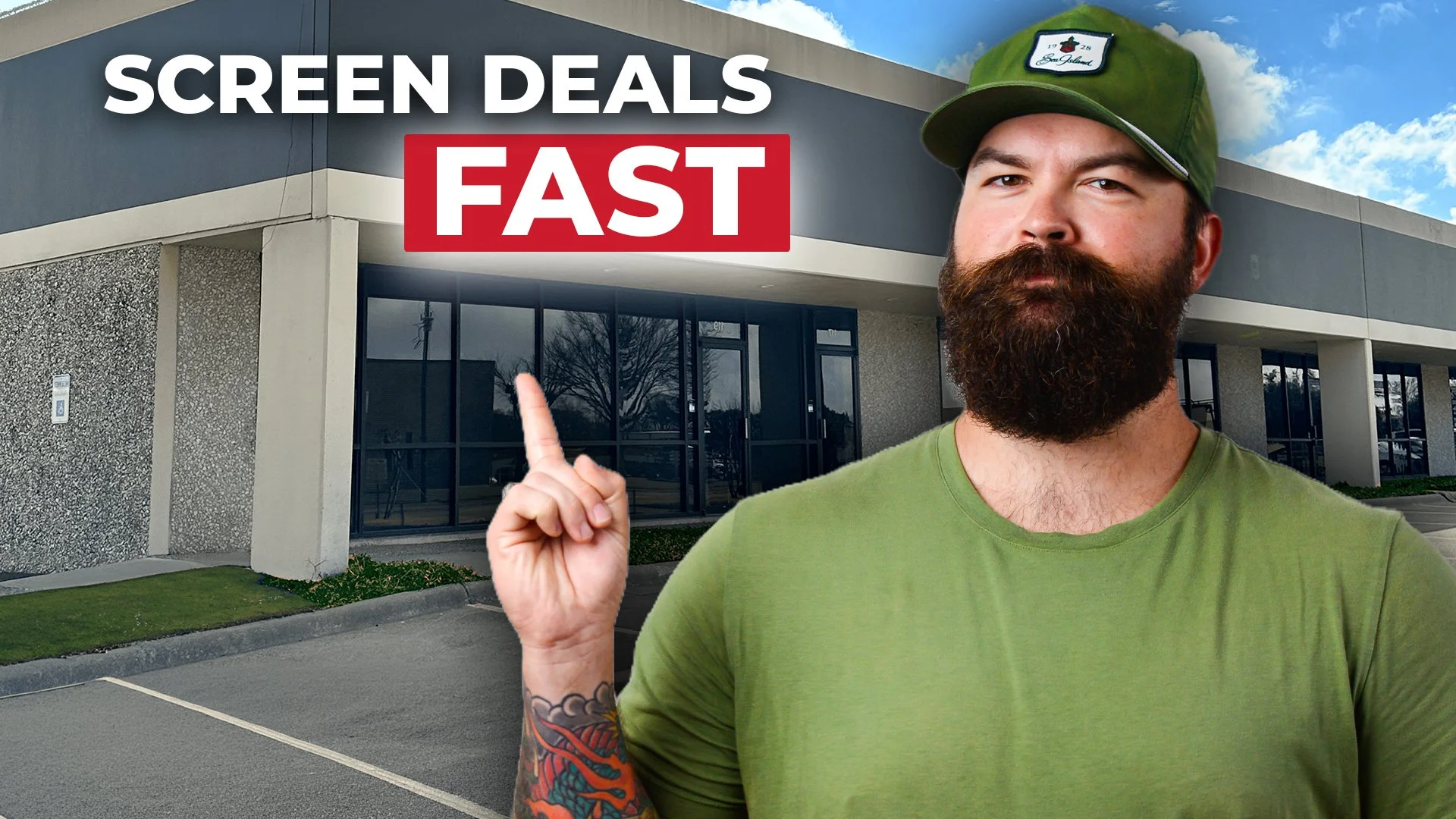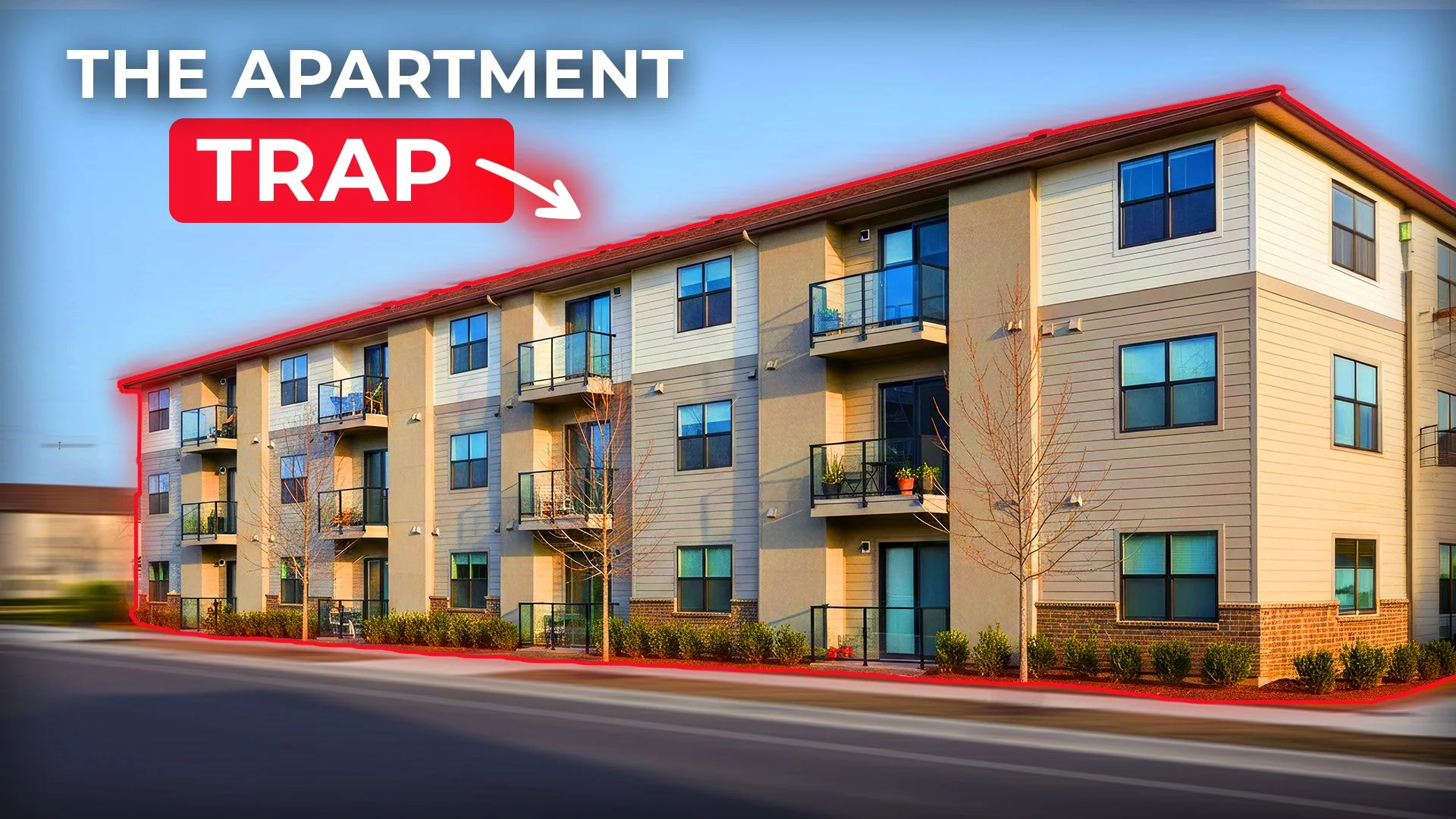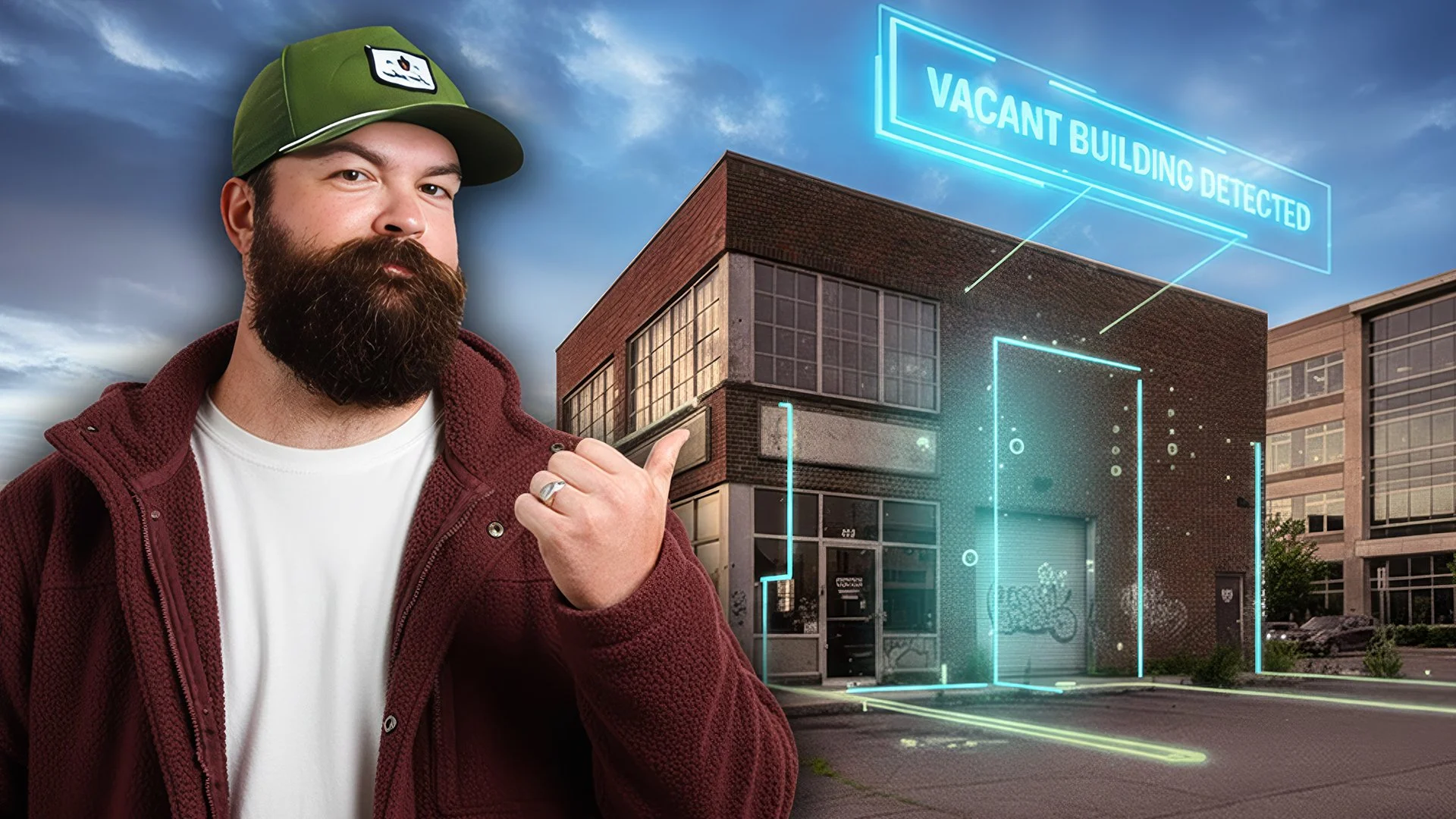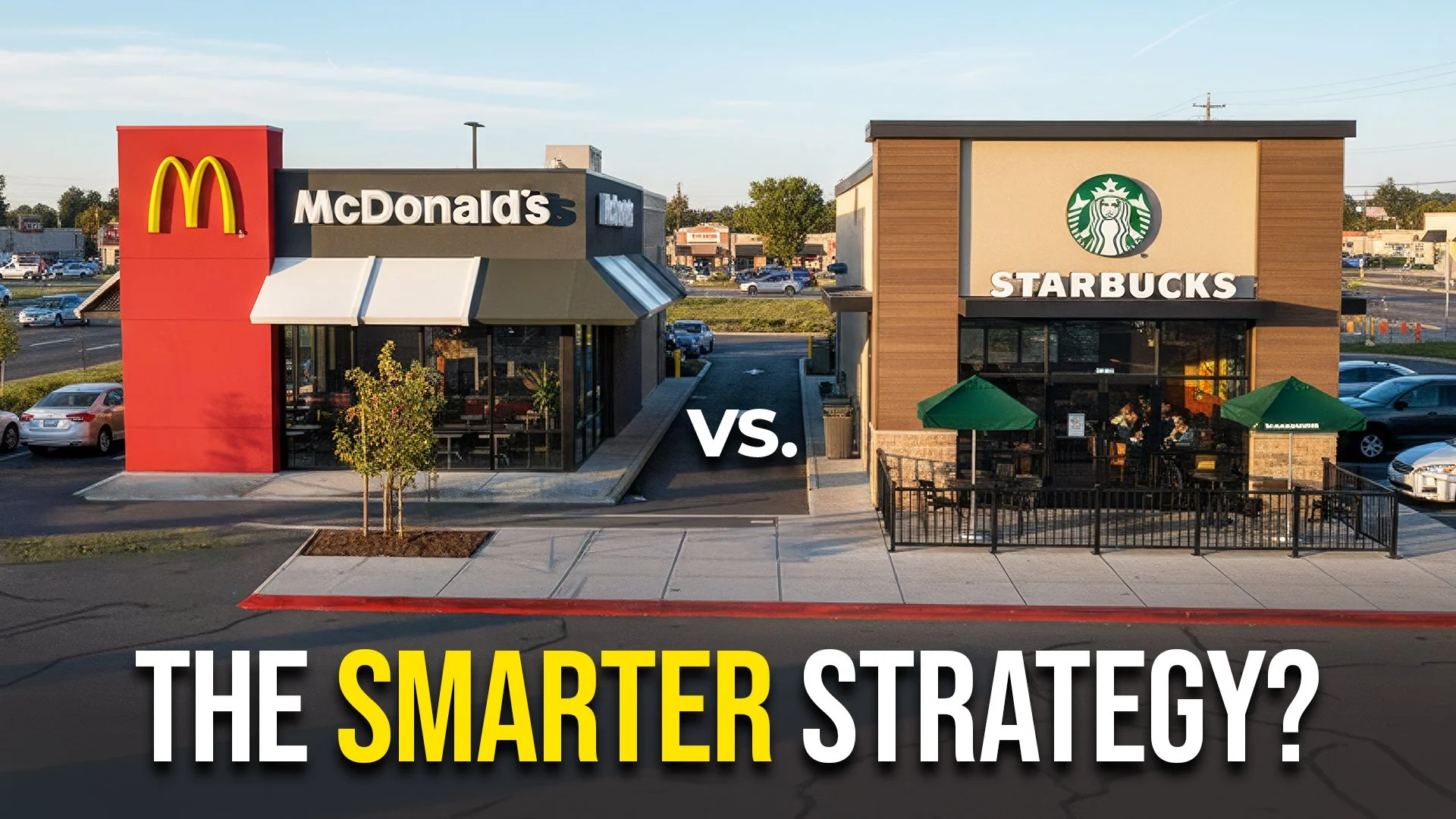What Bigger Pockets Won't Tell You About Real Estate Investing
I’ve got nothing against BiggerPockets. They helped me get started! But they’ve also convinced thousands of investors that residential real estate is the only path to freedom—when in reality, it’s just another job. 👉 Midnight tenant texts 👉 $200/month cash flow (if you're lucky) 👉 “Passive” income that’s anything but Meanwhile, commercial real estate investors are building scalable portfolios, creating real cash flow, and forcing appreciation—without the stress.
In this episode, I’ll walk you through:
Why residential investing is broken
What makes commercial real estate simpler, smarter, and more scalable
How I turned a $1,000 investment into $400,000
The exact 4-step framework we teach inside the CRE Accelerator Mastermind to help beginners close their first commercial deal in under a year
Whether you’re tired of managing toilets or just want a clearer path to wealth, this might be the escape hatch you’ve been looking for.
Get commercial real estate coaching, courses, and community to jumpstart your investment journey over at CRE Central: www.crecentral.com
Key Takeaways:
Residential real estate is a "second job" with low returns, while commercial real estate offers scalable, passive income
Commercial properties generate higher cash flow by leasing to multiple businesses under one roof, typically netting around $15,000 monthly
Commercial real estate allows investors to force appreciation by repositioning assets, changing tenant mix, and improving property layout
Professional commercial tenants are more reliable, focused on business growth, and less emotionally demanding compared to residential tenants
Success in commercial real estate requires learning specific skills like deal underwriting, building a specialized team, and choosing the right investment strategy
About Your Host:
Tyler Cauble, Founder & President of The Cauble Group, is a commercial real estate broker and investor based in East Nashville. He’s the best selling author of Open for Business: The Insider’s Guide to Leasing Commercial Real Estate and has focused his career on serving commercial real estate investors.
Episode Transcript:
Tyler Cauble 0:00
Tyler Cauble 0:00
I've got nothing against bigger pockets. In fact, they helped me get my start in real estate. But here's the truth, they've convinced 1000s of people to chase residential real estate, and it's keeping them stuck. You're grinding for 100 bucks in cash flow, you're managing tenants, toilets and trauma, and you're told that this is the path to freedom. It's not commercial real estate is way simpler. It's more scalable, and it actually builds wealth.
Tyler Cauble 0:34
I'm Tyler combell with 12 years of commercial real estate under my belt, I've led dozens of successful deals, helped investors transition out of residential and created great spaces for small businesses to grow, all while building passive income and long term wealth for both myself and others inside my commercial real estate accelerator mastermind, I teach you how to do the exact same thing, but today, let's talk about why residential is broken and why commercial is the escape hatch that no one told you About. They say residential real estate is the path to financial freedom, but let's be honest, what it really becomes is a second job. You're dealing with tenants who text you at midnight, and plumbing issues that somehow become your fault, and eviction notices that you really don't want to send but you just can't afford not to, and all of that just to make a few $100 a month in cash flow. If that sure you can stack doors. But at a certain point you hit a ceiling. The banks don't want to lend to you anymore, and the returns get thinner. Every additional unit just adds more chaos. What they don't tell you is that residential real estate investing is capped, not just financially, but mentally. The more you grow, the more it controls you, and that's where bigger pockets, intentionally or not, leaves investors stuck. They've built a massive platform around a strategy that worked in 2012 but in today's market, it's overcrowded, it's overpriced and it's overwhelming. That's not freedom, that's stress dressed up as strategy, and it's why I never went the residential route, not because it doesn't work, but because there's a better way today, that's commercial real estate. Commercial real estate is what residential investors think that they're getting into until reality hits. Here's what makes commercial real estate different and why it's better. First, scalability with residential. Every new unit means a new headache. In commercial you can lease one building to 510, even 20 businesses on one parcel, under one roof. That's leverage. Second, better cash flow. Instead of chasing $200 a door, I've got properties that net $15,000 a month. That's not hypothetical, that's actual passive income. Because commercial tenants don't just rent space. They run businesses out of it. They're incentivized to stay, pay on time and take care of the property. Third, you can force appreciation. You're not waiting for the market to hopefully climb at 3% per year, for your neighbor to sell for a little bit more. With commercial you can reposition the asset, change the tenant mix, increase the noi, improve the layout, and you can create value. That's how I turned $1,000 investment into $400,000 a deal wasn't lucky, it was strategic. And maybe most importantly, you're dealing with professionals. No more late night drama, no more. I lost my job. I can't pay my rent this month. Commercial tenants are often business owners. They're focused on growth, not excuses. Residential real estate is emotional. Commercial is logical, predictable, scalable. And if you're thinking, Yeah, but commercial sounds complicated. Let's talk about that myth next. Most residential investors think commercial real estate is out of reach. It's too complicated, too expensive, too risky. But here's the truth, once you understand the system, commercial real estate is actually easier than residential why? Because there's less competition. Everyone's chasing the same, duplexes, fourplexes and house hacking strategies. But commercial properties, fewer people understand how they actually work, and that means more opportunity, especially for investors who know how to spot value. Second, the financing is better than people think in commercial lenders care more about the deal than your personal credit. If the property cash flows and makes sense on paper, there are banks that are ready to fund it, often with better terms than you'd get on a residential rental deal, and the deals themselves, they're often simpler. With residential, you're emotionally tied to tenants in commercial, it's just business, clear leases, clean numbers, clean outcomes. Now, yes, there are nuances, different terminology, a learning curve, of course, but that's exactly why I created the CRE accelerator mastermind. We break it all down step by step, from finding the right deal to underwriting it to getting it funded and stabilized, we've had people come in with zero commercial experience and close their first deal in under nine months. You don't need to be a millionaire, you don't need to be a broker. You just need the right system and the right guidance. Once you have that commercial real estate stops being intimidating and starts becoming the right opportunity, the opportunity that it really is. So what do you do now, if you're watching this, thinking, okay, I get it. Commercial Real Estate makes more sense. But how do I actually start? Well, you're not alone. The first step is pretty simple. Stop trying to reinvent the wheel. Commercial Real Estate. Is a different game, yes, but it's a game with clear rules, and when you have someone to show you how to play it, you don't waste yours guessing. So here's what you do. Number one, learn how to underwrite a deal, how to analyze it. This is where everything starts. In commercial real estate, the value of a property isn't based on cops or what the place next door sold for. It's based on how much income it produces. That's why learning how to underwrite a deal isn't just about filling in a spreadsheet. It's about understanding the story behind the numbers. You'll need to know how to calculate and evaluate the net operating income, how cap rates work and what they mean in different markets, how lease structures like gross versus triple net affect, risk and cash flow, what makes a deal bankable and what makes it dangerous, and once you understand that you're not just guessing, you're making decisions like a professional investor. Number two, build your team commercial real estate is a team sport. You guys have probably heard me say that so many times on this channel, trying to go it alone is one of the worst and fastest ways to get stuck, or worse, make costly mistakes. You need a broker who actually specializes in the type of deals that you're doing, not just somebody with a real estate license. You need a lender who understands how to finance commercial assets. And you need a property manager who knows how to work with businesses, not just tenants. We teach you how to interview and qualify your team members. What red flags to watch for? How to structure your relationships so that your team is aligned with your success. This one shift, having the right team working with you can turn a complex deal into a clear opportunity. Number three, pick the right strategy. There is no one size fits all in commercial. Some of our members focus on neighborhood retail, others do office flex or industrial. The point is, you don't chase what's trending. You choose what aligns with your goals, and I can help you break that down. What's your income target? What kind of involvement Are you able to put in or that you want to put in? Are you actively repositioning these deals, or is this something that you really need to be doing on a more passive basis. What's the risk profile that fits your personality and your lifestyle? From there, you pick a niche and go deep, because commercial real estate rewards focus, not necessarily dabbling. Number four, take action with guidance. This is where most people get stuck. They consume content, they run numbers, they save listings, but they never pull the trigger because they don't know if they're doing it right. And that's where the CRA accelerator mastermind comes in. I'll give you the framework, the deal reviews, the coaching and the community to move with confidence. You're not just guessing you're building. And when you have that kind of support, you stop asking, Can I do this? You start saying, What's my next deal? So if you're sitting there, you're frustrated, you're burned out from managing tennis, stacking doors and wondering why it still doesn't feel like you've hit financial freedom. This is your sign. You don't have to keep doing more of what's barely working. You don't need another duplex. You need a new model. And that's commercial real estate. I'll walk you through the exact process of how to start buying those properties. Most people spend years stuck in residential real estate before realizing that there's a better way, and you don't have to wait that long. So apply now to join the mastermind and the link in the description below. Or if you're not ready yet, check out this video next on buying the right commercial property for your first deal, because a year from now, you could still be fixing toilets, or you could be building wealth through commercial real estate. Choice is yours.











